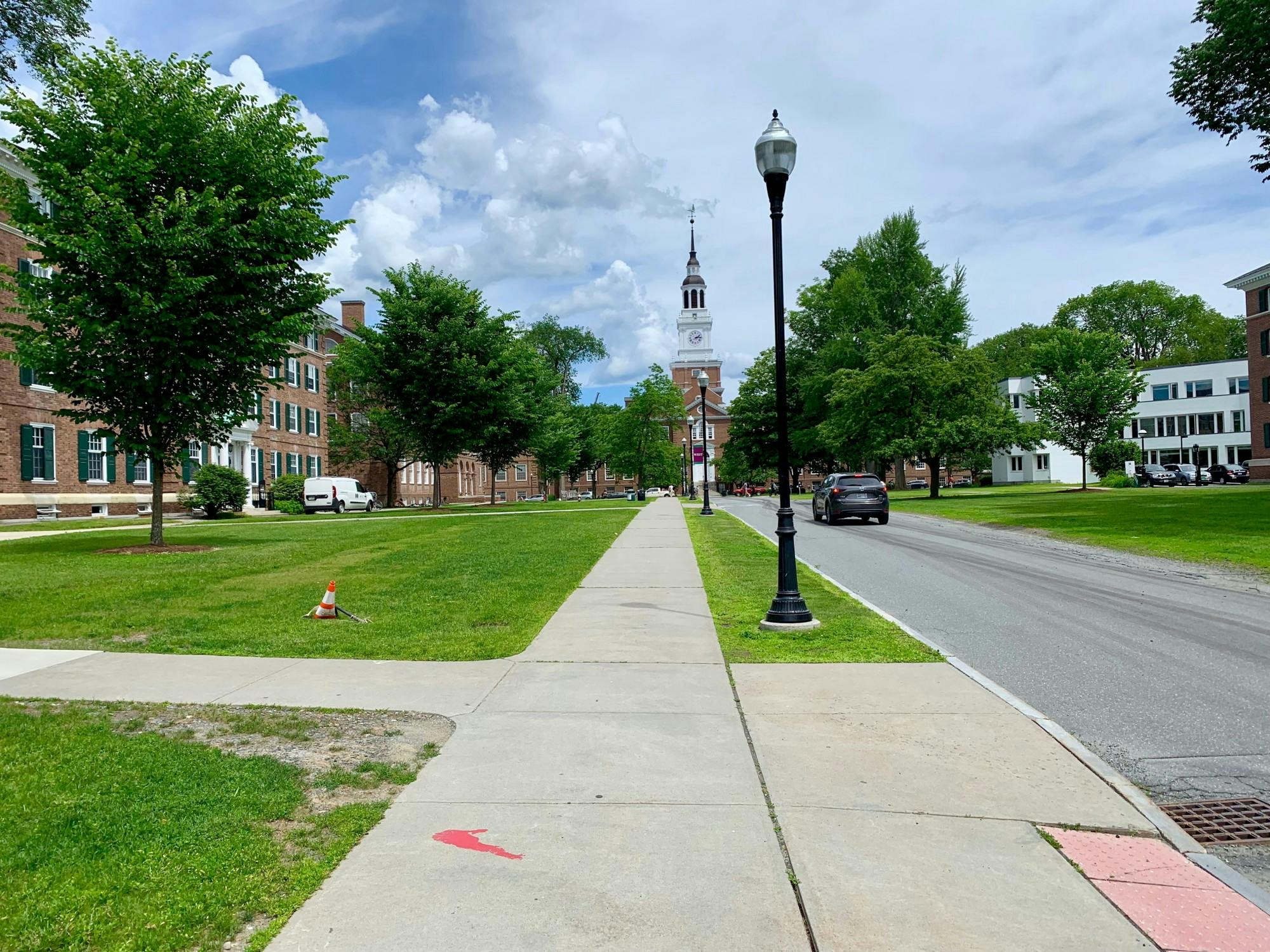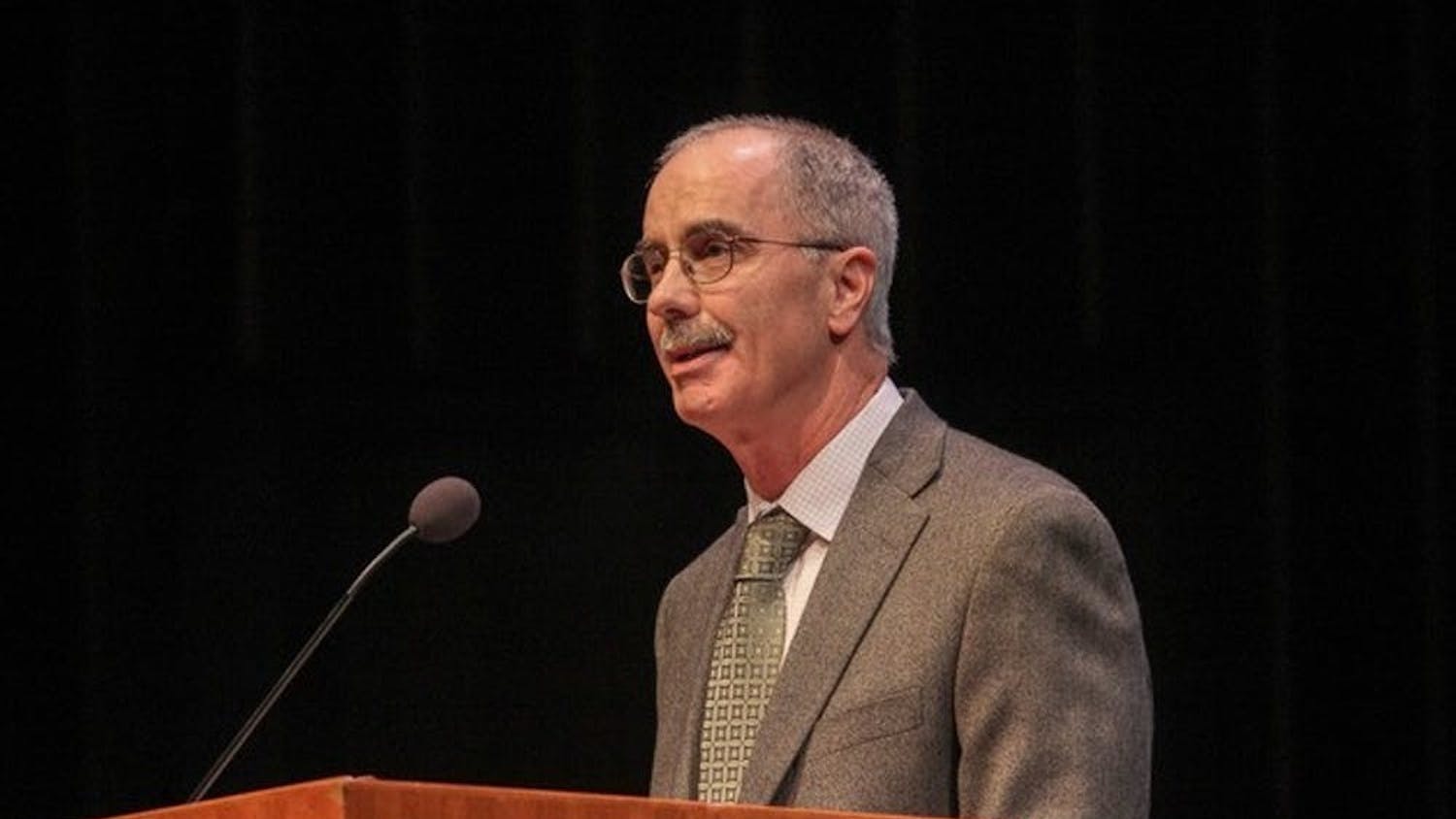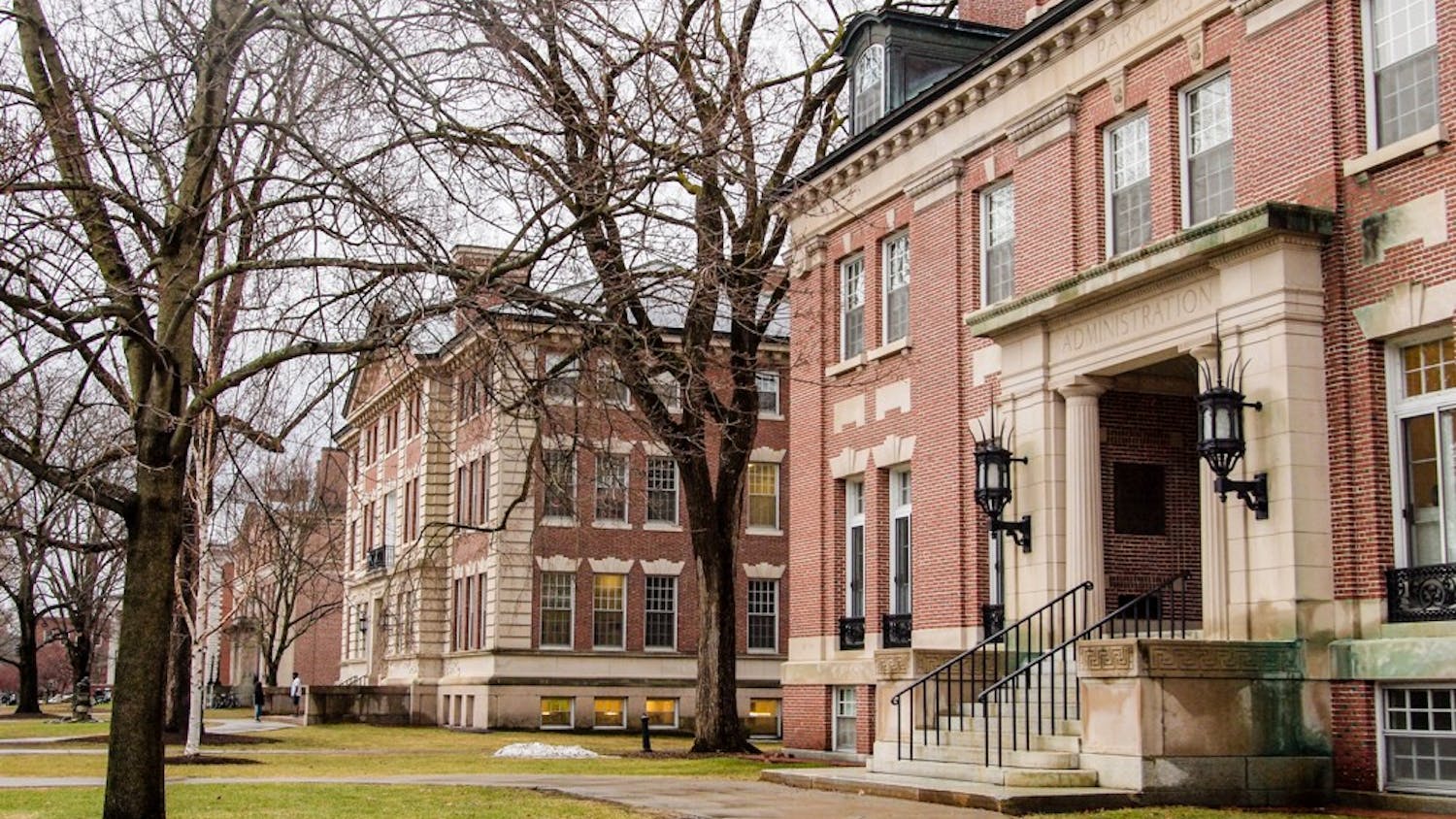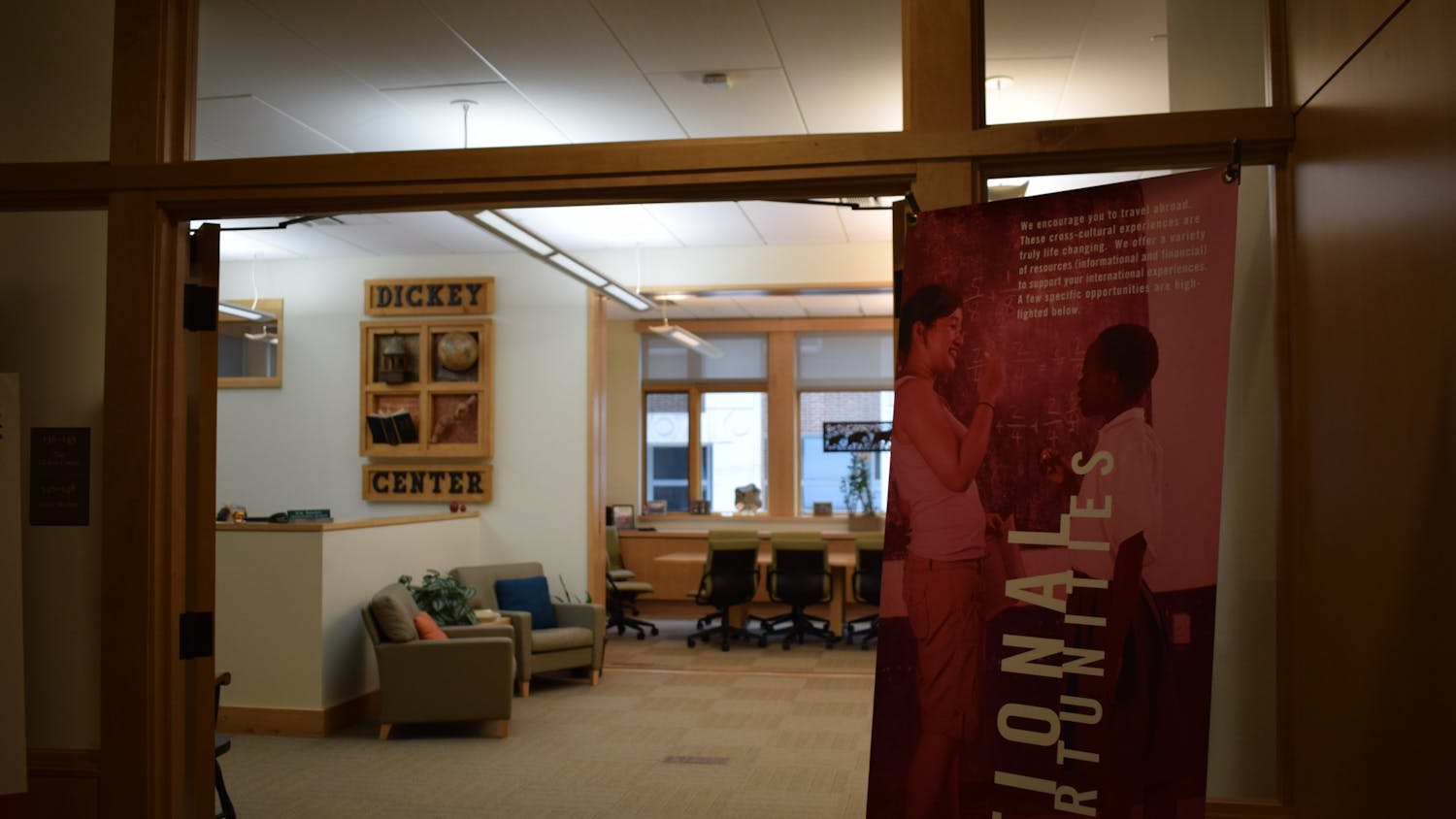In response to the campus-wide email on Monday describing the College’s plans for the upcoming academic year, students have expressed discontent and suggested changes to the College’s reopening plan.
As part of the plan, students will be spending two of the next four terms on campus with designated priorities assigned to each class year: the Class of 2024 will receive priority to be on campus as a residential cohort for the fall and spring terms while the Classes of 2021, 2022 and 2023 will receive priority for the spring, fall and summer terms, respectively. Members of the Class of 2022 who opted to delay their sophomore summer will receive priority for the summer term as well.
Julia Hamill ’23 said that while the news was “pretty much as expected,” she was surprised to hear that the Class of 2024 would receive priority for the fall and spring, stating that the decision seemed to neglect class cohesion and safety concerns.
“It seems confusing that the College wants to treat them as a cohort and promote class cohesion yet they’re giving them two terms with a four month gap in between,” Hamill said. “And in terms of a safety standpoint, having all the students move into the dorms in the fall and then move out … it’s just more people coming in and out and the hassle doesn’t make any sense.”
Hamill posted a petition on Change.org on June 29 to advocate for a new academic plan for bringing students back to campus. In the petition, she attributed the restrictive nature of the reopening plan to the College’s “housing problem” that she wrote has been “festering for decades.” She also cited the diminished value of remote academic learning and perceived unfair distribution of priority as reasons to amend the current plan. The petition currently has over 1,000 signatures.
Hamill said she felt there was a “huge discrepancy” in how classes are being prioritized. She said that, because her class and some members of the Class of 2022 are the only students who will likely apply to be on campus in the summer, the Class of 2023’s priority for summer term is unnecessary.
“It’s not a priority because it’s not like we’re getting it over anyone else,” Hamill said. “No one else is trying to get the summer.”
Hamill had initially viewed sophomore summer as an added bonus when choosing to attend Dartmouth.
“I remember when I was touring the school and picking Dartmouth it seemed like this amazing thing that was supposed to be an added benefit that all sophomores get,” Hamill said. “Instead, it almost feels like it’s being used against us to give us less time on campus.”
College spokesperson Diana Lawrence wrote in an email statement that many housing options — including hotels, temporary housing and additional support services — were examined when determining how to house the student body while following health guidelines for social distancing and isolation.
She wrote that “based on health and safety requirements and the additional logistical infrastructure that would be needed to support these options,” the alternate options have not been included in the current plan to house students.
While Hamill said that in a “perfect world,” the petition would allow the Class of 2023 to be given priority for spring and summer while the Class of 2024 is given priority for fall and winter, her goal for the petition is to raise awareness and express her disappointment.
“The petition wasn’t coming from a place of anger so much as a place of confusion and sadness that [it feels like] the school that I love and want to be at … isn’t paying attention to my class,” Hamill said.
Emma Kallman ’22 said that she feels the fall, for which her class has been given priority, will be a “guinea pig period,” with the College testing public health measures and making adjustments “in real time.”
“It seems like every social event will be shut down,” Kallman said, listing Hopkins Center for the Arts shows, parties and dining halls. “It seems very sad, very lonely, very 1984-esque.”
Kallman said she believes that the decision to give the ’22s priority for the fall stemmed from a desire to avoid three online terms in a row for the class, but she still felt disappointed because fall will be “one of the worst terms.” After seeing the other classes’ priority assignments, she remarked that “every other term seems to make sense to me more.”
Her plans to go abroad in the summer, then the fall, were dashed, and she is now unsure if she will accept her priority term and return to campus in the fall.
“I’m taking it one step at a time,” Kallman said.
Conner Boehm ’24 said his initial reaction to the news was “probably more negative than it otherwise would’ve been” due to the delivery of the follow-up email from Dean of the College Kathryn Lively on Monday.
“From a perspective of … delivering the message it just felt almost in my face, almost a little aggressive,” Boehm said.
Boehm said that in the days following the College’s email, he read several other universities’ statements conveying similar messages that were more “empathetic.”
“It didn’t really hit the right mark for me as far as making me feel supported as a student or making me feel like I was getting empathy from the administration,” he said.
There is no consensus among aggrieved students on how best to reconstruct class priority assignments, as multiple different plans, including Hamill’s, have been suggested. Owen Seiner ’24, for example, said he would prefer to see the Class of 2024 receive priority for fall and winter instead of fall and spring.
Seiner added that he worries forming friendships with other members of his class will be difficult because of the non-consecutive terms on campus and social distancing procedures in place.
“I feel like it will be a lot harder to make friends and cement those friendships, especially when we’re not having consecutive time together,” Seiner said. “It will be really weird to make friends in the fall term, and then be away from them for four months, maybe longer, and then go back to campus and try to resume our friendships, even though we might be totally different by then.”
Boehm acknowledged that the administration’s plan seems “pretty solid from the perspective of stopping the spread of coronavirus,” but he suggested that some of the public health measures, such as the mandatory 14-day quarantine upon arrival and social distancing, may be damaging to mental health.
The College has yet to delineate the rules students must follow during their 14-day quarantine at the start of fall term. Claire O’shaughnessy ’24 said the uncertainty surrounding the start of her college experience has caused her anxiety. She added that she does not understand how orientation activities will be conducted, since even if they are held after the quarantine period, there will still be strict social distancing protocols that will limit most forms of social interaction.
“It’s a little bit scary to think about the fact that you’re going to be so distanced from the other people you’re trying to meet,” O’shaughnessy said. “I feel like a lot of kids at Dartmouth like the intellectual class environment and discussions, not only in class but in the dorms, and, when that’s remote, it’s really hard to get to know your classmates and professors. It’s almost like there’s a wall between students at every possible level.”
Student Assembly president Cait McGovern ’21 had mixed feelings on the news that the Class of 2021 would only receive priority for the spring term.
“When it comes to the ’21s, I know a lot of us have not been on campus together since the end of sophomore summer so having our senior year be prioritized for just that final term theoretically on campus is a bit disappointing,” McGovern said. “But I know that hopefully we’ll still be on campus together for part of the year and make it out of Dartmouth looking back fondly on our experiences.”
In response to the plans, Student Assembly sent an email to the student body asking for questions to submit to the administration. As of Thursday, McGovern said the form has received upwards of 800 questions, a compilation of which will be sent to the administration Friday.
McGovern said that SA had expressed concern in a meeting with College President Phil Hanlon and Lively that without priority for the fall, the Class of 2022 would face three remote terms in a row. She also said that she and SA vice president Jonathan Briffault ’21 also advocated for additional student input in the decision.
“We stressed with them how the College needs to provide maximum flexibility for all students right now to take terms off or gap years,” McGovern said. “And we also urged them to be more transparent with the decision-making process.”
McGovern referred to peer institutions that have released plans with “very-detailed reasonings behind why they made the decisions that they made” to bring back students, and said that emulating this will alleviate student understanding of the College’s decisions.
When asked about the reasoning behind the priorities assigned for each class, Lawrence wrote that “the senior administration assessed all possible information in consultation with the task force and made the best decision they could under the circumstances.”
Dartmouth experts weigh in
Anthropology professor Elizabeth Carpenter-Song and global health initiative program director Anne Sosin recently published Phase I of their research report, “COVID-19 & Rural Health Equity in Northern New England.”
Carpenter-Song said the news to house more than half of the student body each term didn’t come as a surprise, and cited mixed feelings about welcoming students back to campus.
“It’s welcome news on one hand in terms of having students return to the place of Dartmouth. As we think about first years, introducing them into the community and fostering for them a sense of connection to the institution seems very important,” Carpenter-Song said. “On the other hand, this comes with some concern … it’s a call to care for others and there’s a tension between individualism and the broader collective.”
Vermont and New Hampshire have registered low numbers of cases of COVID-19 despite bordering New York and Massachusetts, two states with over 100,000 cases each, according to data from The New York Times. New Hampshire is, as of Thursday, the only state to have currently declining case numbers, along with Washington, D.C.
“We documented really extraordinary efforts to achieve the low infection rates in the Upper Valley,” Sosin said. “I think given the absence of new public health tools we’re going to have to do a lot to sustain that progress.”
How the virus will shift numbers in the Upper Valley in the incoming year is dependent on the willingness of students to “preserve the academic experience and also to protect the gains that have been achieved in the Upper Valley,” Sosin said.
“The trajectory of the pandemic really depends on our actions as a community, as a campus, as individuals,” Sosin said. “If everyone who comes back to campus complies with public health measures in place then we have a really good chance of sustaining a low infection rate.”
According to Sosin, the stakes are high in the Upper Valley, as there are high rates of social vulnerability amongst the older populations in rural areas surrounding campus.
“If we are not able to control transmission, we risk infecting large numbers of people who are highly vulnerable to the worst consequences of the virus,” Sosin said.
Sosin said that pandemic has had significant impacts on the health systems and communities in the Upper Valley. She added that there is a misconception surrounding rurality in that “rurality confers protection, since people are naturally more physically distanced.”
“The reality is that many rural communities have a strong social fabric, [as] people are congregating regularly,” Sosin said. “In those communities, viruses can travel very quickly across social networks.”
Carpenter-Song said the prioritization of vulnerable populations requires “moving beyond a Dartmouth-centric model to think about our place at Dartmouth nested within the community of the Upper Valley.”
Dartmouth’s peer institutions offer varied plans forward
Other small liberal arts colleges in the Northeast have taken differing approaches to reopening. Bowdoin College in Maine, home to 1,800 students, is only allowing first-year students and a select number of other students to return to campus, and all classes except first-year writing seminars will be conducted online. Meanwhile, Middlebury College in Vermont will invite all 2,750 undergraduate students back, and “a significant number” of classes will have an in-person component.
Cornell University, the University of Pennsylvania and Yale University have proposed differing plans, as well. A recently published article on Yale’s website invites all undergraduate juniors and seniors back to campus for the entire academic year, while sophomores and freshmen will alternate the fall and spring semesters, respectively. Penn’s announcement details plans to allow freshmen, sophomores and some upperclassmen back on campus and to lease additional housing nearby for upperclassmen.
Cornell’s reopening statement cited a study that found “two to 10 times more people could be infected with COVID-19 during a semester conducted entirely online, with significantly higher numbers becoming seriously ill,” due to a high volume of students returning to off-campus housing, where Cornell has no authority to mandate testing or restrict students’ behavior. The analysis compelled Cornell to invite most of its students back to campus in the fall, according to the statement.
All Ivy League institutions that have released statements, including the College, are restricting social programming, mandating public safety procedures and enforcing testing regimens to reduce transmission of the virus.
Sosin described institutional responses across the country as “the patchwork pandemic.”
“I think the differences in responses reflect a lack of a coherent national plan for campuses,” Sosin said. “We’re seeing campuses develop plans based on their best calculations, their institutional contacts and their calculations around what risks they’re willing to tolerate.”
Kyle Mullins ’22 contributed reporting.
Correction appended (July 3, 2020): This article originally stated that Hamill would support the Class of 2023 being given priority for fall and winter and the Class of 2024 being given priority for spring and summer. It has been updated to reflect that she is advocating for the reverse.




